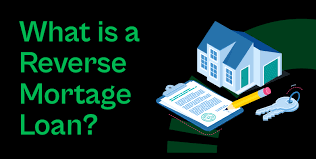Reverse Mortgage Vs Loan Against Property: Which Is The Best Option Forleveraging Home Equity?

Reverse mortgages and loans against property are two financial instruments that allow homeowners to tap into the equity they’ve built up in their homes, but they serve different purposes and come with various features and implications.
Reverse Mortgage
A reverse mortgage is a type of loan that is available to homeowners who are 62 years of age or older. It allows them to convert part of the equity in their home into cash without having to sell their home or pay additional mortgage payments. Instead, the lender pays the homeowner a monthly advance or a lump sum based on the value of the home. The homeowner does not have to repay the loan until they pass away, sell, or move out of the home.
Pros:
– No monthly mortgage payments are required.
– The income received can supplement retirement income.
– The borrower can remain in the home for the rest of their life if they comply with loan terms.
Cons:
– Interest and fees accumulate over time, reducing equity for heirs.
– The balance increases over time as interest on the loan adds up.
– It may affect eligibility for Medicaid or other state assistance programs.
Loan Against Property
A loan against property (LAP) is more like a traditional loan where a property is used as collateral. Homeowners who need funds can take out a LAP and will be required to make regular repayments with interest. If they fail to repay, the lender has the right to sell the property to recover dues.
Pros:
– Interest rates for LAPs are generally lower than personal loans because they’re secured by property.
– Large amounts can be borrowed, depending on the property value and lender criteria.
– Flexible repayment terms, similar to other types of secured loans.
Cons:
– Regular repayment is mandatory; default can lead to loss of property.
– May require a good credit history for approval at favorable terms.
– Having an existing mortgage on your property could affect your loan-to-value ratio and how much you can borrow.
Choosing what’s best:
Deciding between a reverse mortgage and a loan against property depends on individual circumstances such as age, financial needs, income stability during retirement, and plans for inheritance.
For those looking for additional retirement income without monthly repayments, reverse mortgages could be appealing. Conversely, LAP might suit borrowers who need money for a specific purpose like business expansion or education and who have the ability to make regular repayments without jeopardizing their living situation.
Both options should be considered carefully with attention paid to interest rates, fees, loan terms, impacts on estates and assets as well as consulting with a financial advisor. It’s also important to consider alternatives such as downsizing or refinancing. In either case, careful planning is essential to choose the best option for leveraging home equity effectively.



